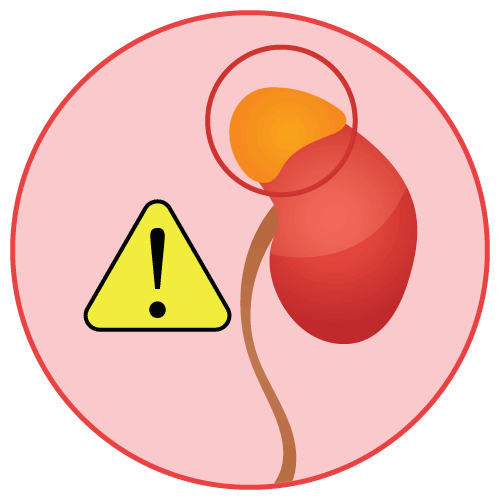| Name | Adrenal failure |

Adrenal failure
What is Adrenal failure?
Adrenal failure, also known as adrenal insufficiency, is a condition in which the adrenal glands do not produce enough hormones, such as cortisol and aldosterone.
Causes of adrenal failure can include:
-
Autoimmune disorders, such as Addison's disease.
-
Infections that damage the adrenal glands, such as tuberculosis.
-
Medications, such as glucocorticoids, are used to treat other conditions and can lead to adrenal suppression.
-
Trauma or injury to the adrenal glands.
-
Chronic stress or adrenal gland tumors.
Symptoms of adrenal failure can include
- fatigue
- weakness
- weight loss
- low blood pressure
- skin changes
What is the treatment for adrenal failure?
Treatment for adrenal failure typically involves replacement hormone therapy to compensate for the hormones that are not being produced by the adrenal glands. This can be in the form of oral cortisol or aldosterone replacement.
Risk factors for adrenal failure include
- a family history of the condition
- autoimmune disorders
- prolonged use of glucocorticoids
Prevention of adrenal failure is difficult, as it is often caused by underlying medical conditions or medications. However, maintaining a healthy lifestyle, managing stress, and avoiding unnecessary use of glucocorticoids can help reduce the risk of developing adrenal failure. If taking medications that can cause adrenal suppression, it is important to monitor hormone levels regularly and discuss any concerns with a healthcare provider.
 Bangla
Bangla English
English